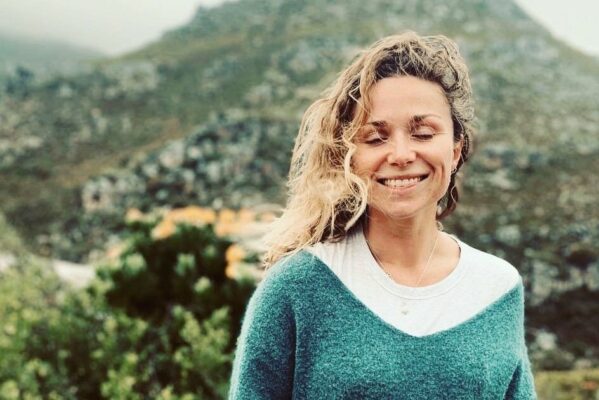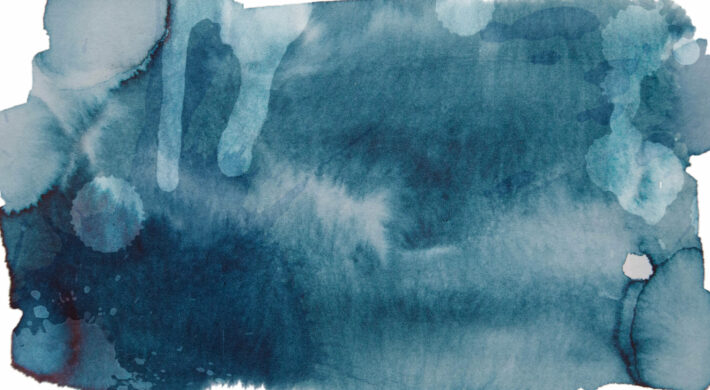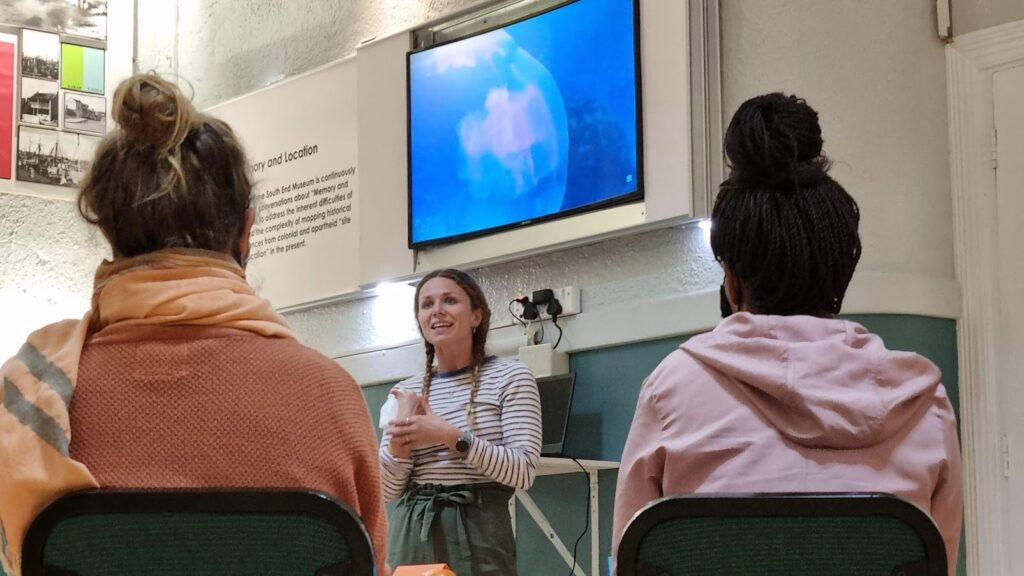spotlight on early-career researchers: mia strand


My name is Mia Strand, and I am a social science early-career researcher from Nelson Mandela University in Gqeberha, South Africa. My research area centres around arts-based knowledge co-production for more equitable and inclusive area-based ocean management. My previous work has focused on community-based participatory research methods, gender and human rights, the coloniality of development partnerships and ocean conservation efforts.
What’s your greatest achievement since you started working for the One Ocean Hub?
I believe the most important work I have been doing and contributing to during my time with the Hub has been the arts-based research project in Algoa Bay, South Africa that forms part of my PhD. Together with 24 co-researchers that have varied relationships with the ocean and coast, and colleagues that work closely with marine spatial planning processes and arts-based methods, we organised a multimedia exhibition at the South End Museum in Gqeberha in March this year. The exhibition was widely attended and representatives from national, provincial and local government all expressed they had learnt something new about cultural and spiritual connections to the ocean. So, I guess my greatest achievement has been this – working as a facilitator to ensure that Indigenous and local knowledge holders could communicate their relationships and connections to the ocean and coast directly to decision-makers. It must be contributing to the facilitation of a space where the co-researchers would be listened to more attentively, and listened to through different mediums. A space for appreciating and connecting with people’s connections to the ocean.
How does your work contribute to shaping the One Ocean Hub’s interdisciplinary endeavours?
My work centres around arts-based participatory research approaches, where I work closely with researchers from different disciplines and non-academic co-researchers. I am therefore extremely lucky to learn directly from my own work on ways of co-producing knowledge and interrogating strengths and weaknesses of different interdisciplinary and transdisciplinary approaches. Some of my research sheds light on how arts-based research can clarify and contribute to protect human rights in ocean governance, and contributes to conversations around how human rights and the arts can support more inclusive inter- and transdisciplinary ocean research.
What opportunity has the Hub provided you to lead on innovative research? How has the Hub enhanced your leadership skills?
The Hub encourages its members to explore arts-based and creative research methods, which are sometimes still seen as innovative in the ocean governance research realm. I have learnt so much from senior researchers and colleagues in the Hub, such as Dylan McGarry and Marly Muudeni, and love to explore the opportunities of arts-based research methods through conversations and knowledge exchange events. For example, my supervisor Dr Nina Rivers and I presented on the role of arts-based participatory research methods in highlighting intangible cultural ocean heritage at last year’s UN World Oceans Day, and contributed with the co-researchers to the COP26 Virtual Ocean Pavilion event on UN Decades and SDG synergies at the Ocean-Climate Nexus.
Furthermore, the Hub continuously offers opportunities for taking initiative and leading smaller projects, such as workshops, events and papers. For example, I have had the great pleasure of co-leading an ECR paper on transdisciplinarity in transformative ocean governance research with a big group of Hub ECRs, contributing to the development of the UN General Comment on Children’s rights to the environment, and currently leading a paper on children’s rights to a healthy ocean and its role in culture.
What, in your view, have been the Hub’s most impactful activities?
I would say that the work the Hub supports in its partner countries, such as the work with small-scale fishers and fisher leaders in Ghana and South Africa which continues to make ripples (see for example South African coastal communities’ victory over oil giant Shell).
What are the aspects of working in a collaborative environment such as the One Ocean Hub that you value the most?
What I enjoy the most must be learning from others, and the opportunities of collaborating with people that you really look up to. The interdisciplinary, international and collaborative environment of the Hub means you are often challenged at things you think you might take for granted, and you are exposed to different realities, lived experiences and viewpoints which contributes to a more nuanced and dynamic worldview, and therefore ways of working as a researcher. Being part of the Hub, I feel like I increase my potential to grow as a relational and responsible researcher, learning and unlearning ways of knowing the ocean and knowing itself.
What are the challenges and new demands that early-career researchers face today?
Early-career researchers are facing a lot of demands, such as expectations of doing research for impact, but also publish and read and attend events and engage with different disciplines, colleagues and non-academic partners and collaborators. Early-career researchers must also make sure they take part in current transformative change, such as decolonising research methodologies and academic institutions.
What is your advice to fellow early-career researchers working on a global development project?
For anyone working on or within a global development project, I would advise to be critical and ask questions. Interrogate who the project is benefitting and why. Whose definition of development is being implemented and what does this mean for the project, and the people the project is supposed to benefit. At the same time, I would advise fellow early-career researchers to address potential asymmetrical power relations in their own knowledge production processes and continue to consider for whom and for what you are conducting your specific research.
